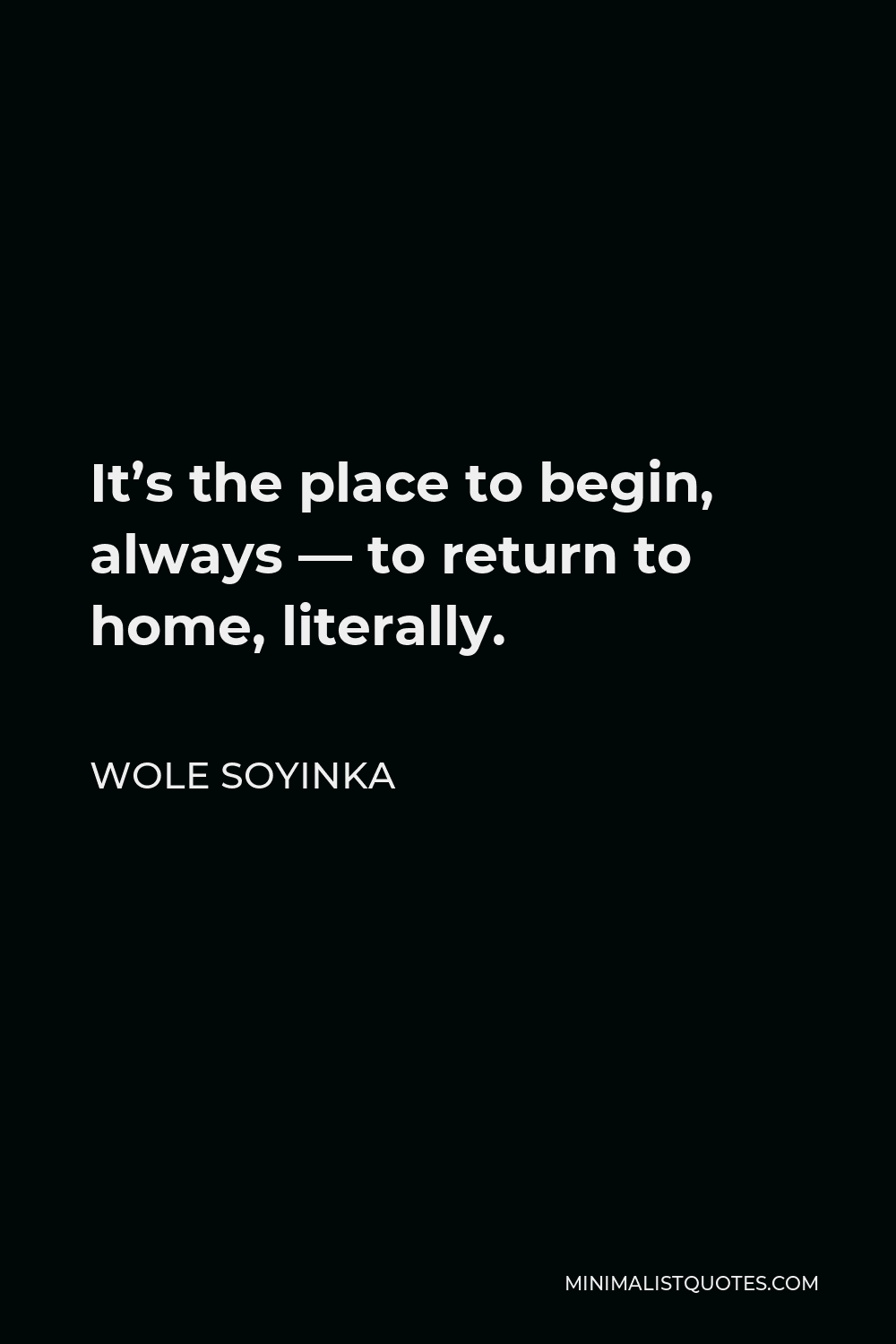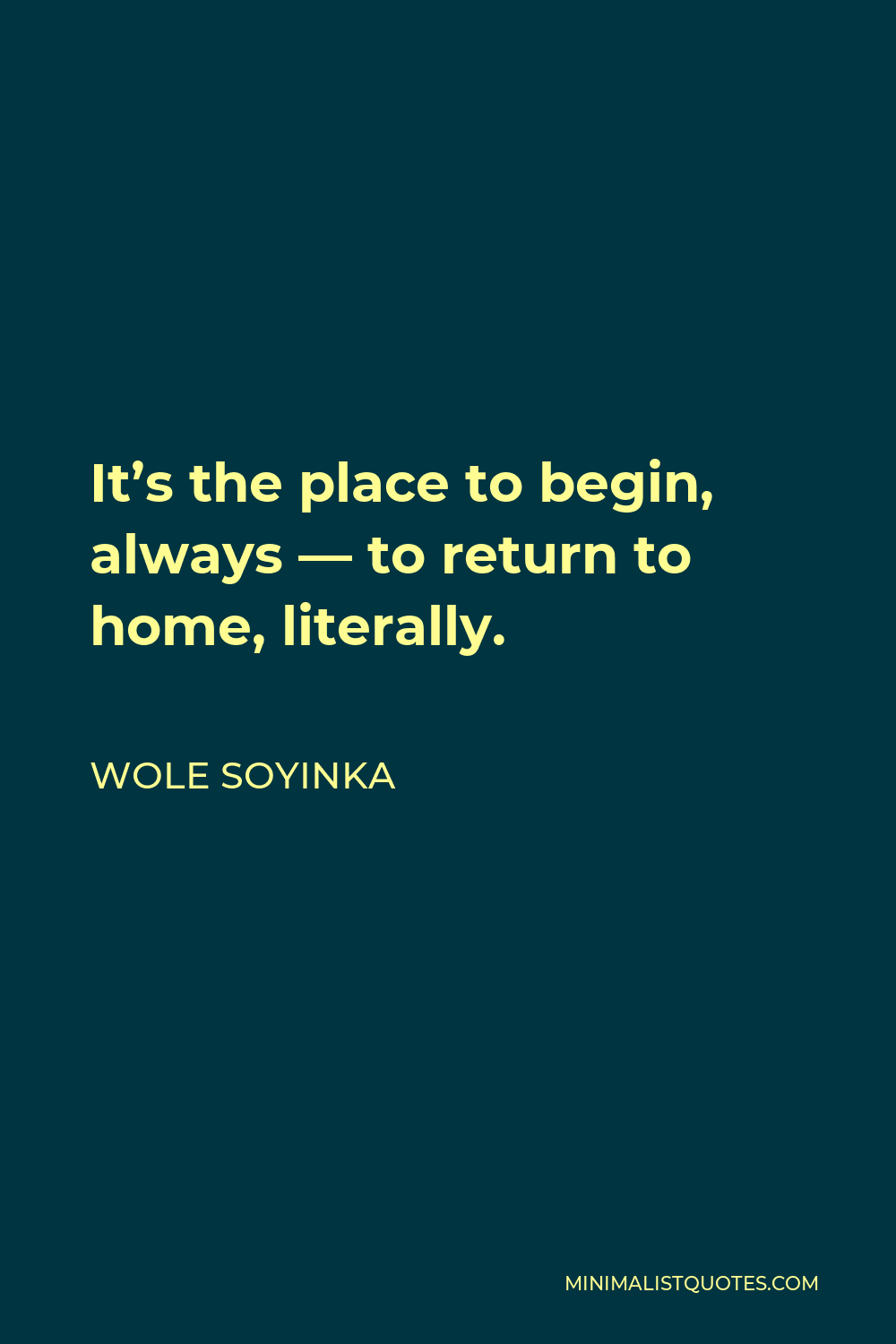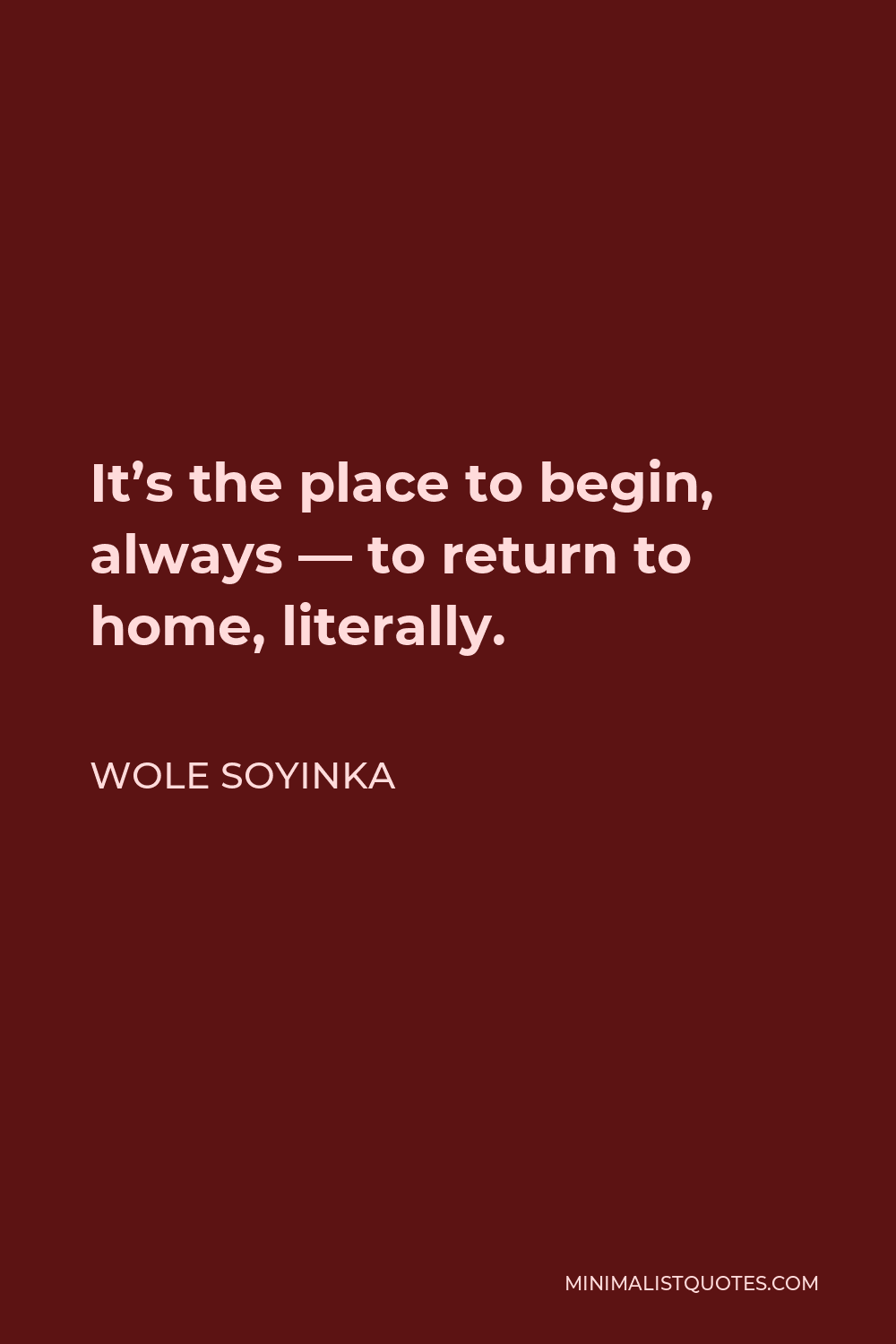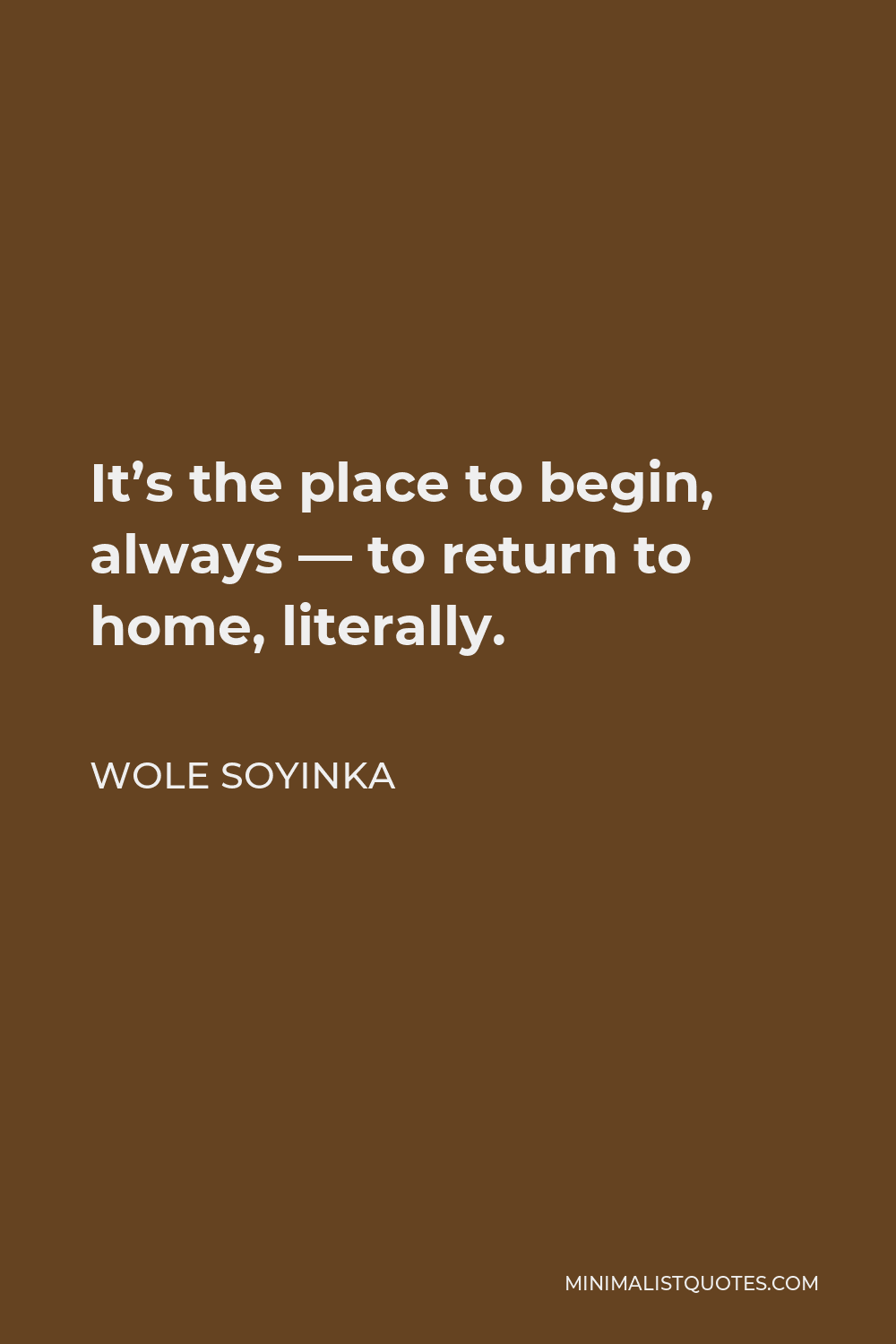A tiger does not proclaim his tigritude, he pounces.
WOLE SOYINKAIt’s the place to begin, always — to return to home, literally.
More Wole Soyinka Quotes
-





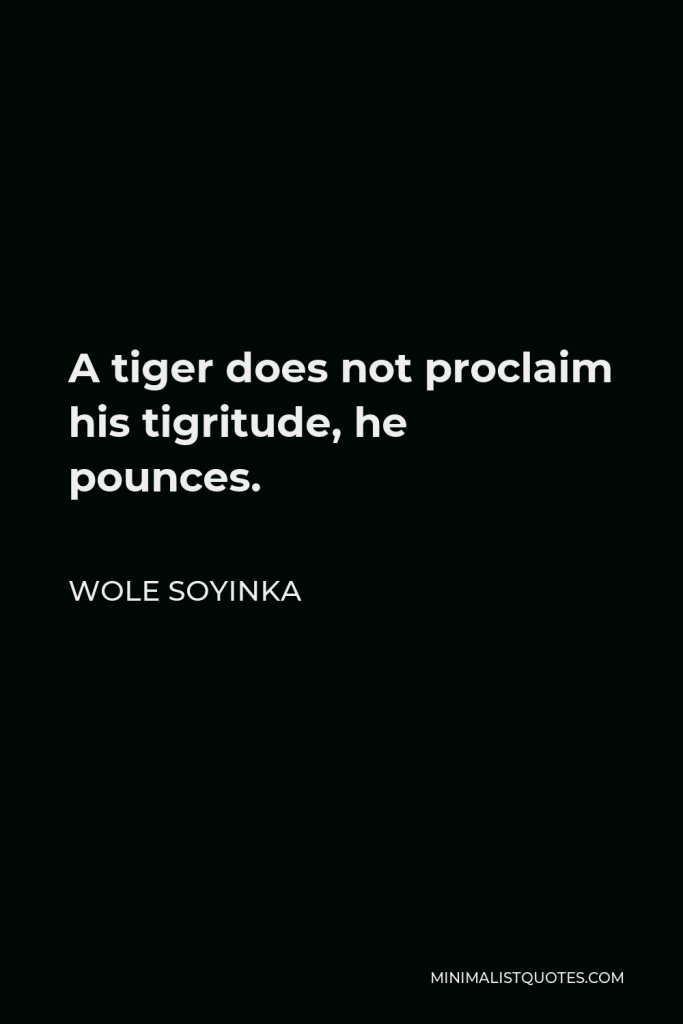

-





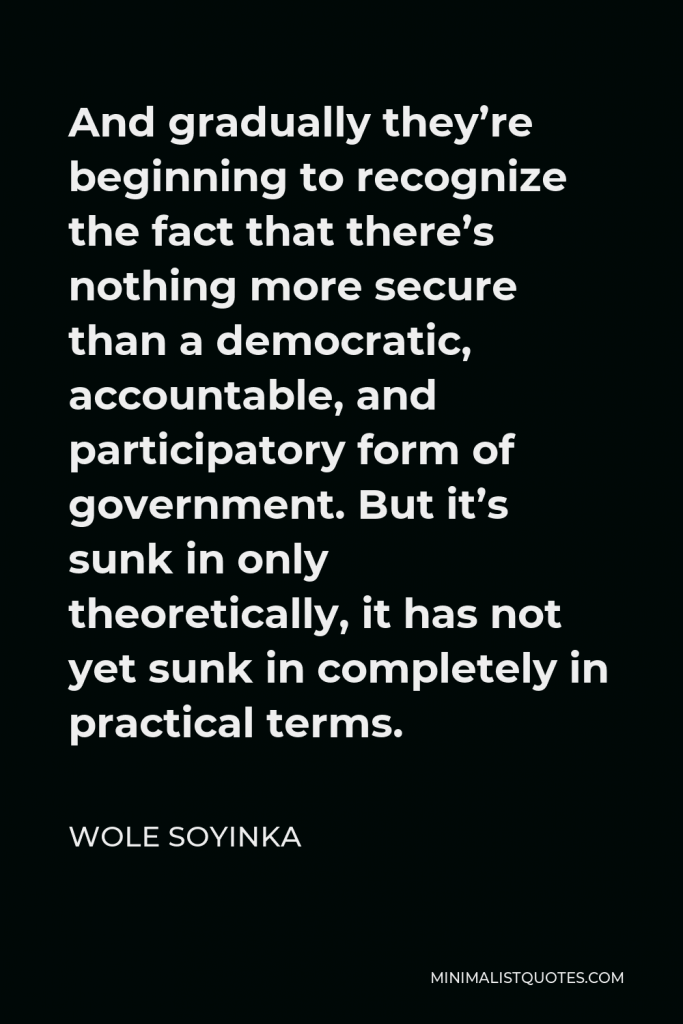

And gradually they’re beginning to recognize the fact that there’s nothing more secure than a democratic, accountable, and participatory form of government. But it’s sunk in only theoretically, it has not yet sunk in completely in practical terms.
WOLE SOYINKA -





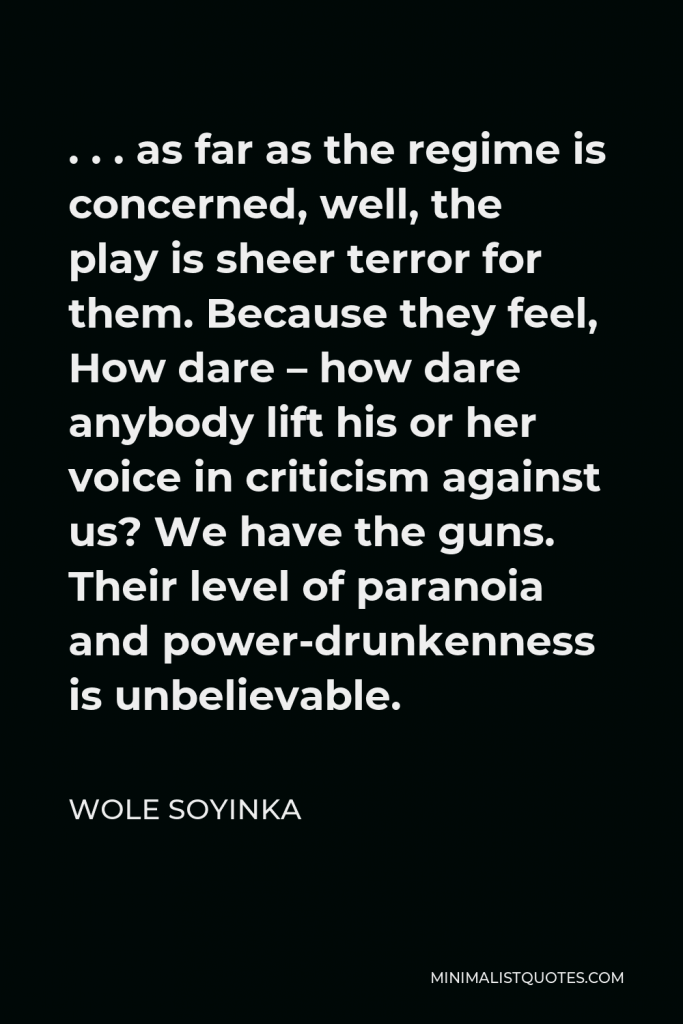

. . . as far as the regime is concerned, well, the play is sheer terror for them. Because they feel, How dare – how dare anybody lift his or her voice in criticism against us? We have the guns. Their level of paranoia and power-drunkenness is unbelievable.
WOLE SOYINKA -





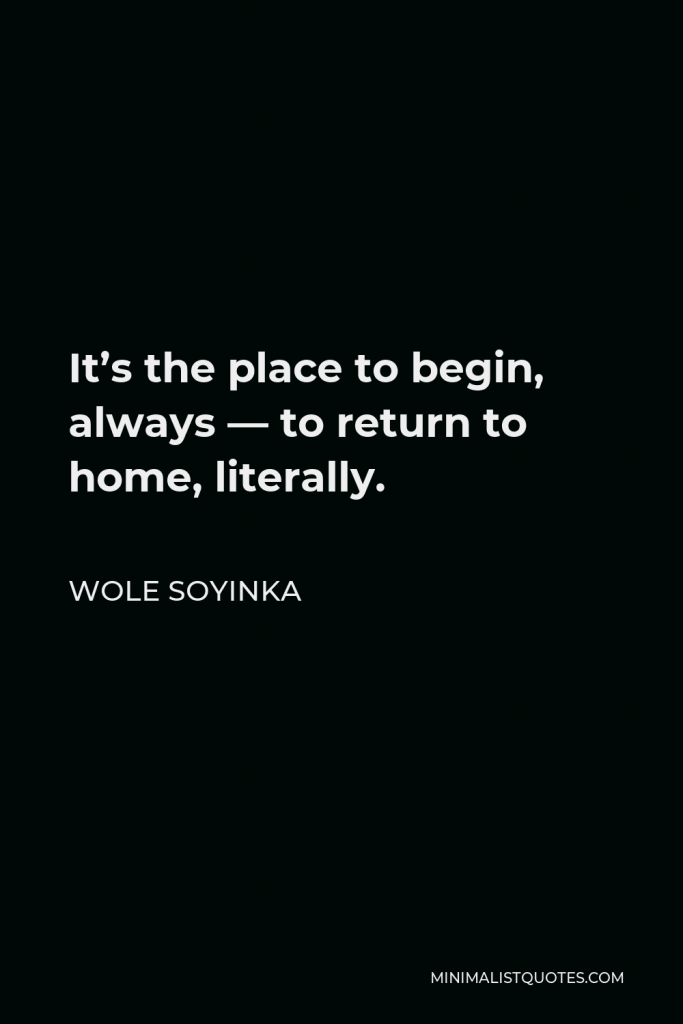

It’s the place to begin, always — to return to home, literally.
WOLE SOYINKA -





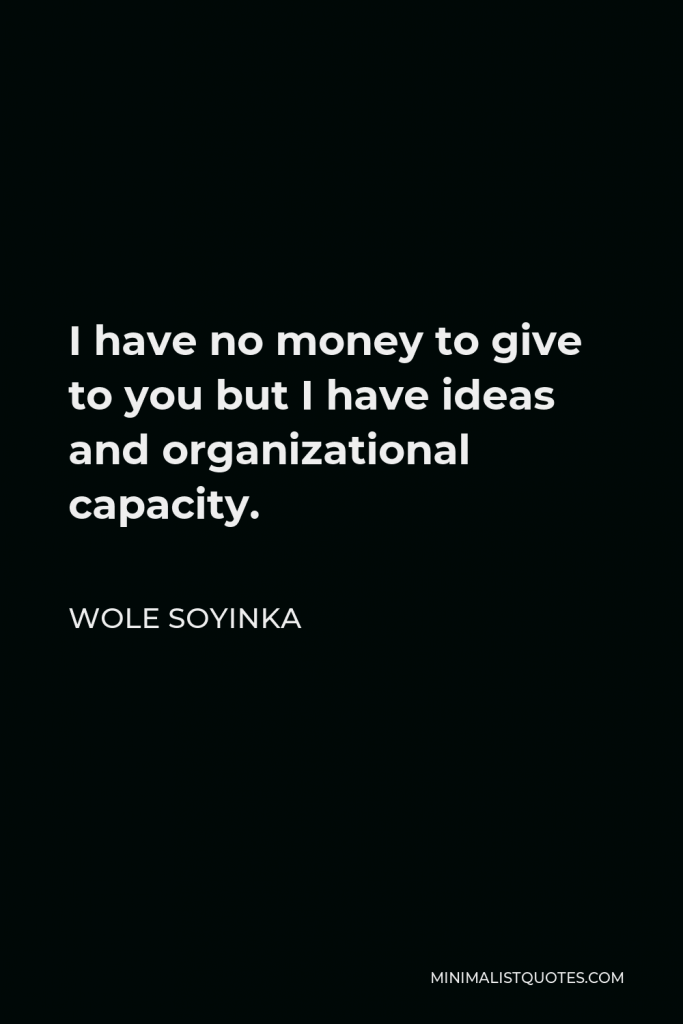

I have no money to give to you but I have ideas and organizational capacity.
WOLE SOYINKA -





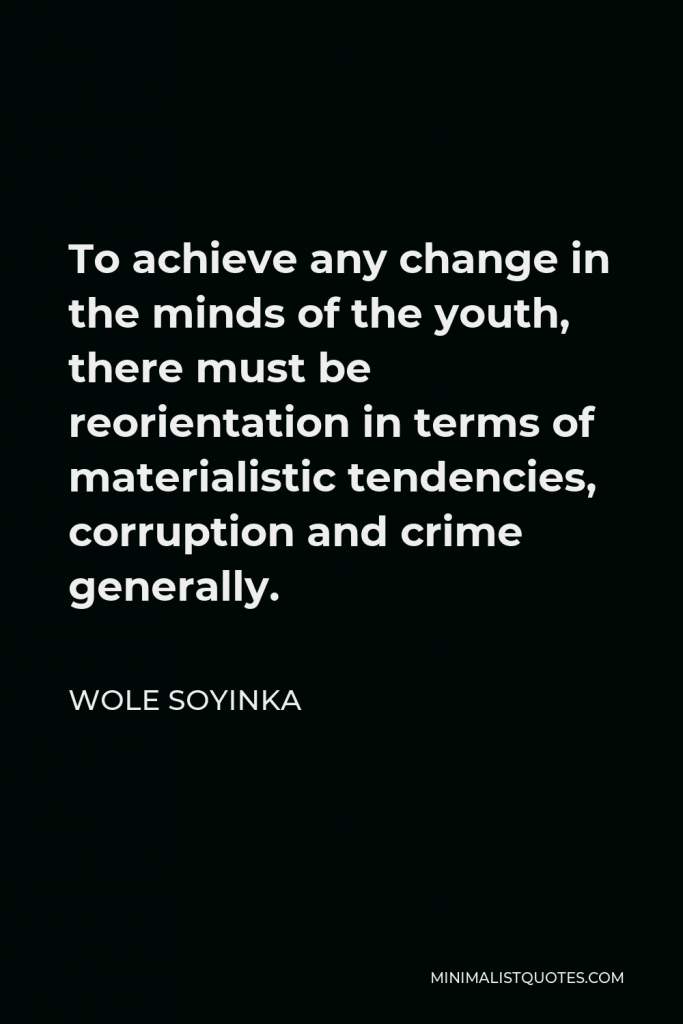

To achieve any change in the minds of the youth, there must be reorientation in terms of materialistic tendencies, corruption and crime generally.
WOLE SOYINKA -





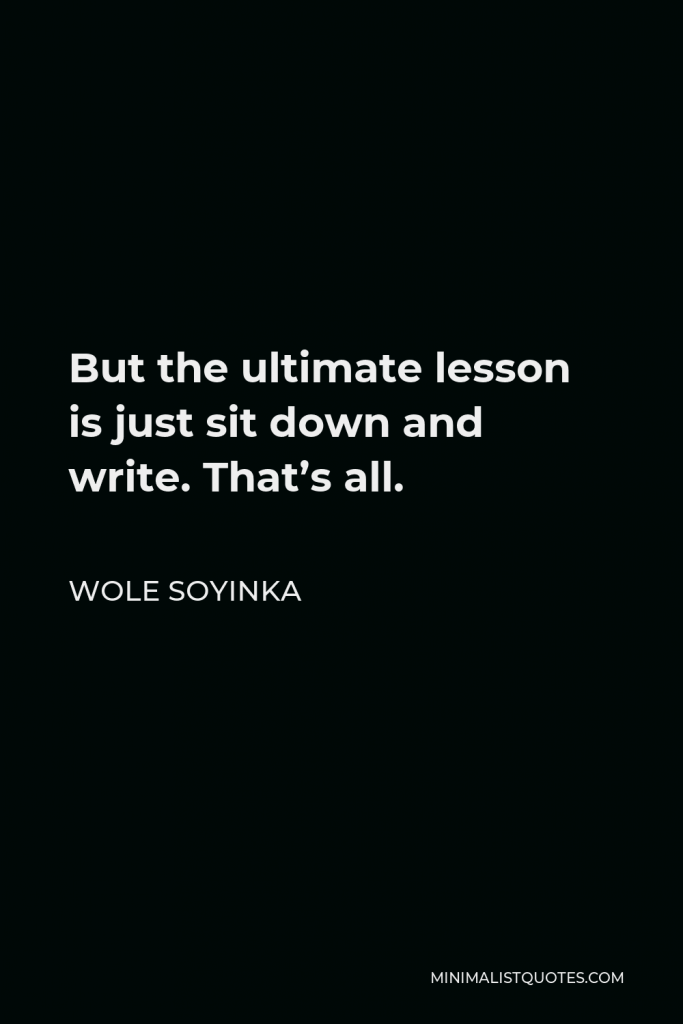

But the ultimate lesson is just sit down and write. That’s all.
WOLE SOYINKA -





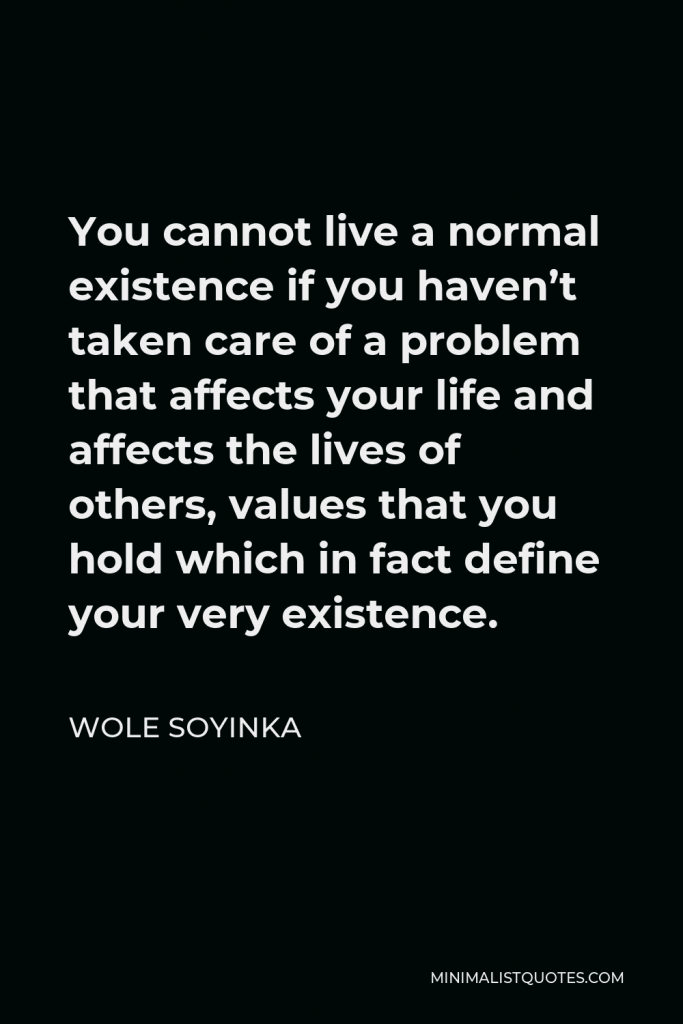

You cannot live a normal existence if you haven’t taken care of a problem that affects your life and affects the lives of others, values that you hold which in fact define your very existence.
WOLE SOYINKA -





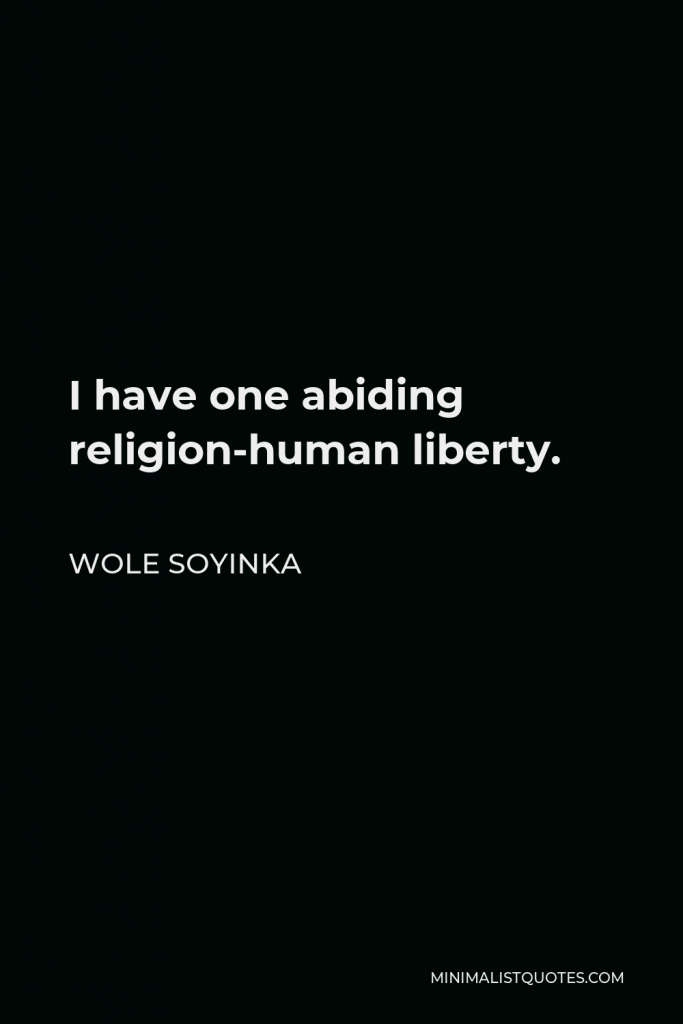

I have one abiding religion-human liberty.
WOLE SOYINKA -





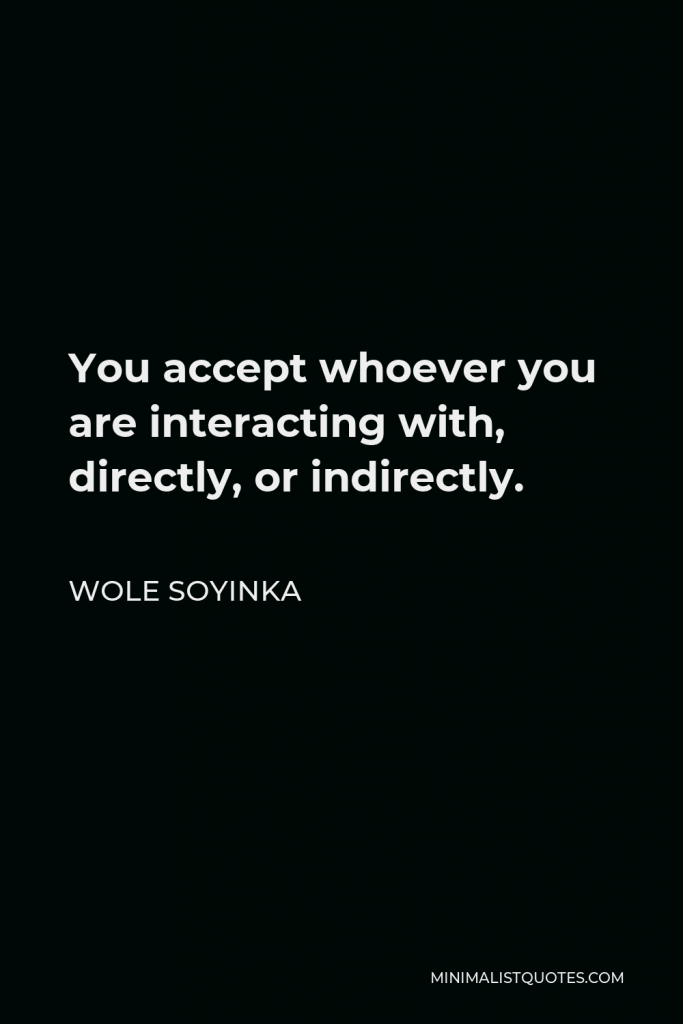

You accept whoever you are interacting with, directly, or indirectly.
WOLE SOYINKA -





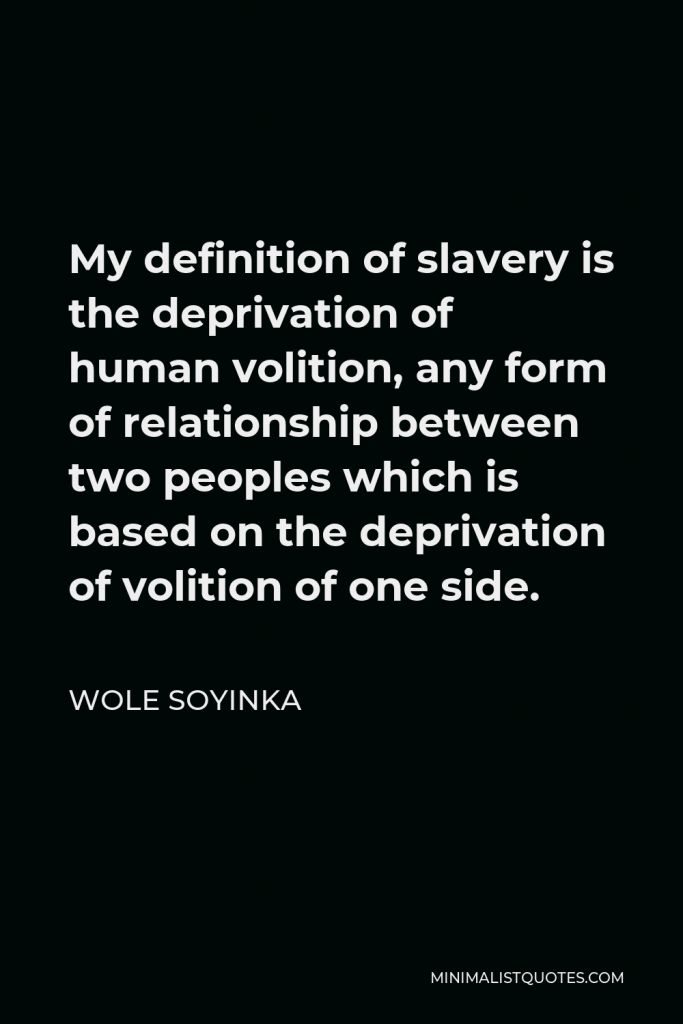

My definition of slavery is the deprivation of human volition, any form of relationship between two peoples which is based on the deprivation of volition of one side.
WOLE SOYINKA -





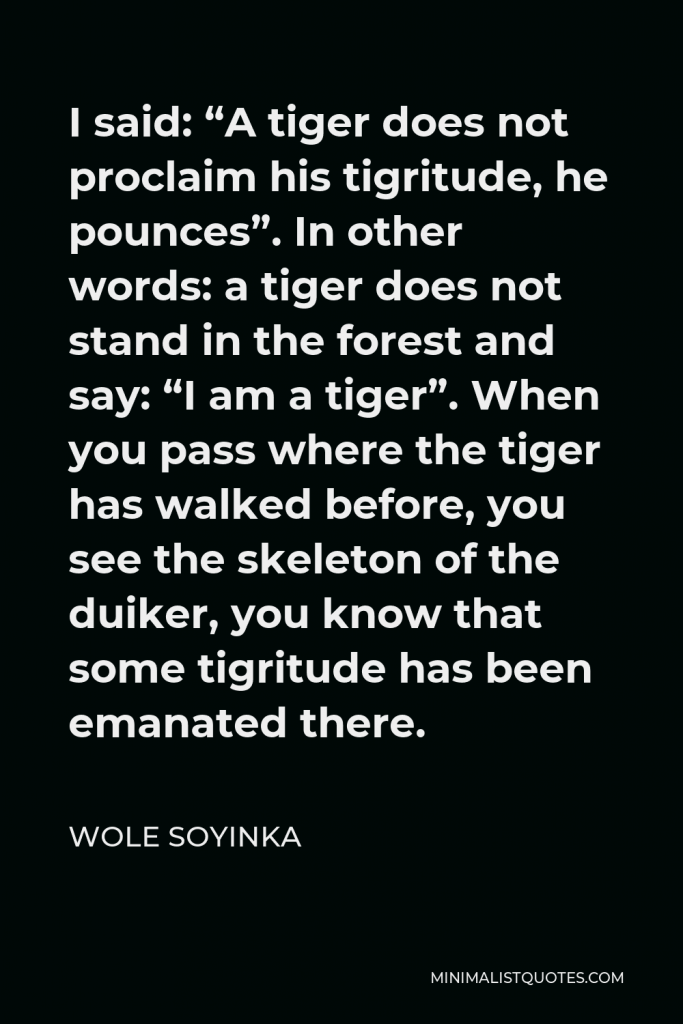

I said: “A tiger does not proclaim his tigritude, he pounces”. In other words: a tiger does not stand in the forest and say: “I am a tiger”. When you pass where the tiger has walked before, you see the skeleton of the duiker, you know that some tigritude has been emanated there.
WOLE SOYINKA -





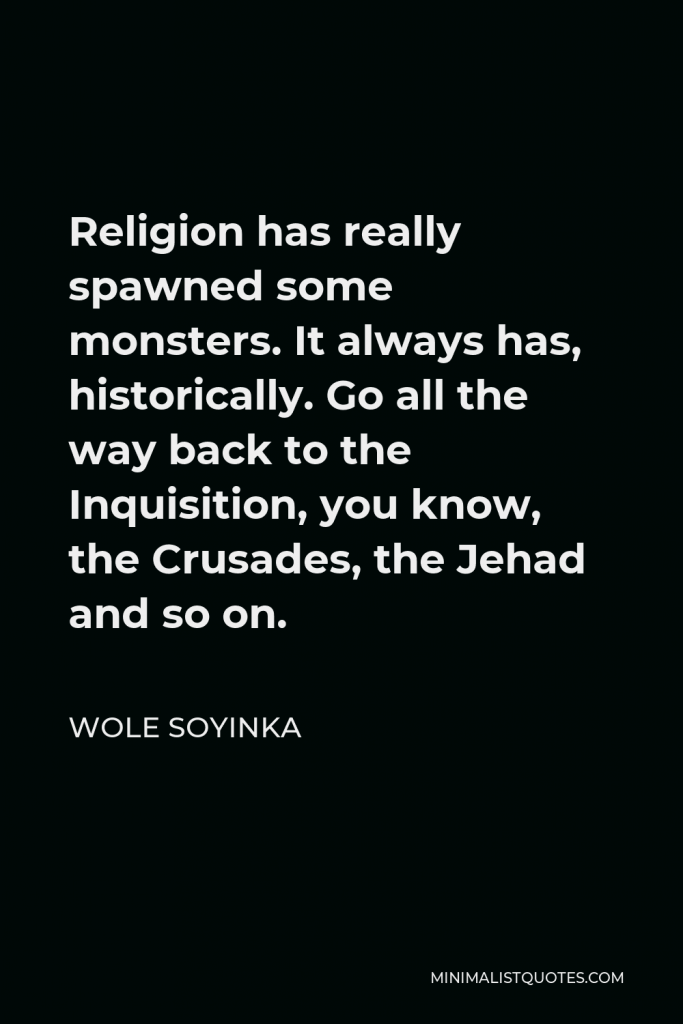

Religion has really spawned some monsters. It always has, historically. Go all the way back to the Inquisition, you know, the Crusades, the Jehad and so on.
WOLE SOYINKA -





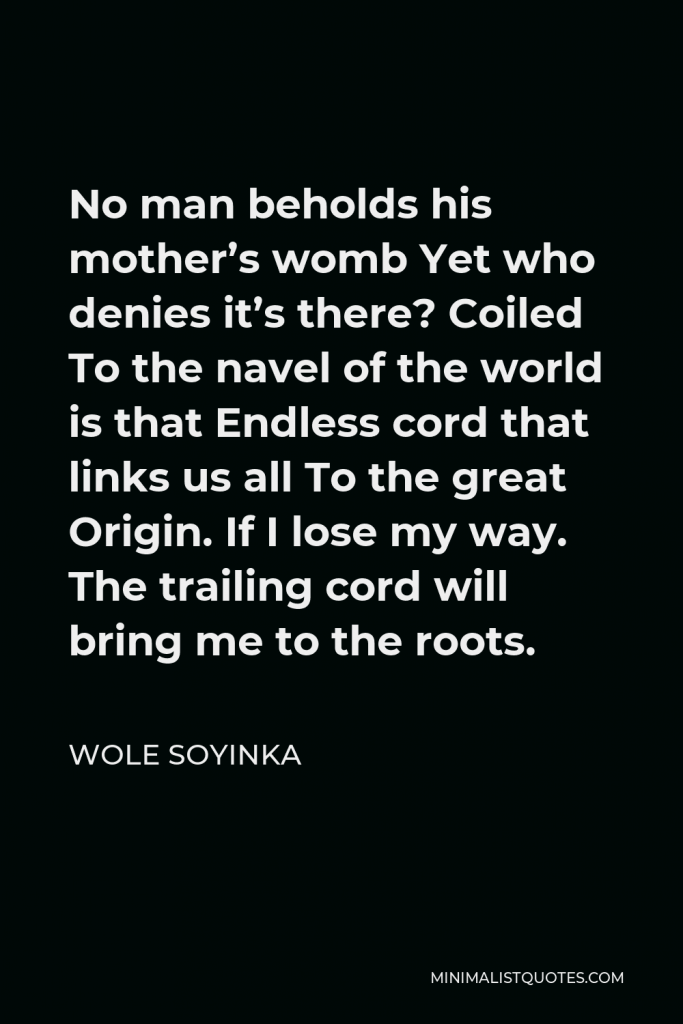

No man beholds his mother’s womb Yet who denies it’s there? Coiled To the navel of the world is that Endless cord that links us all To the great Origin. If I lose my way. The trailing cord will bring me to the roots.
WOLE SOYINKA -





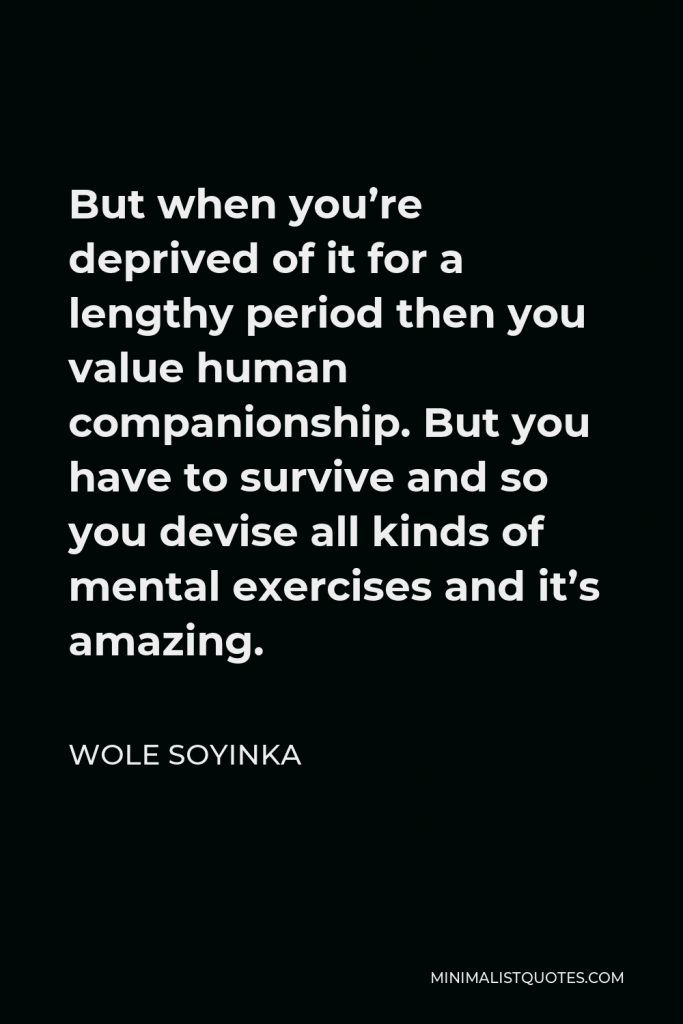

But when you’re deprived of it for a lengthy period then you value human companionship. But you have to survive and so you devise all kinds of mental exercises and it’s amazing.
WOLE SOYINKA -





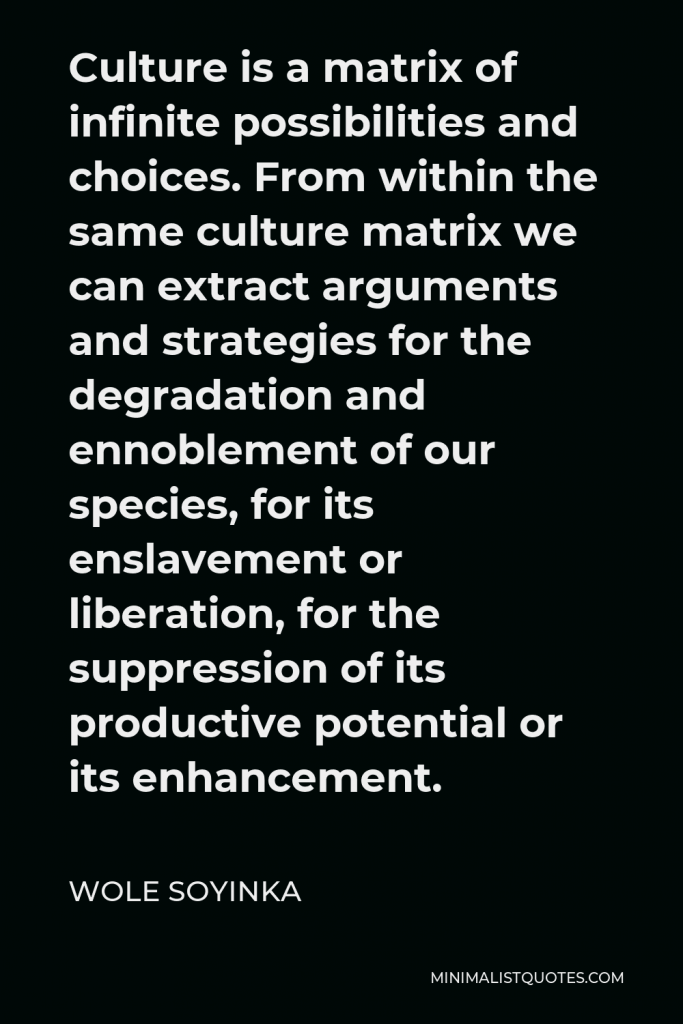

Culture is a matrix of infinite possibilities and choices. From within the same culture matrix we can extract arguments and strategies for the degradation and ennoblement of our species, for its enslavement or liberation, for the suppression of its productive potential or its enhancement.
WOLE SOYINKA
